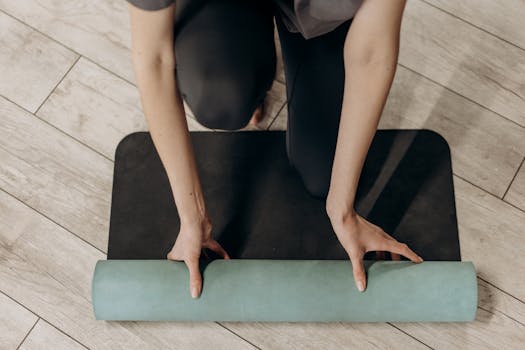
Regular Exercise and Mental Health: How Physical Activity Boosts Wellbeing
Introduction to Regular Exercise and Mental Health

Regular exercise and mental health have a profound connection. Engaging in physical activity is not just beneficial for our physical health but also has a significant impact on our mental wellbeing. Exercise has been shown to reduce stress, improve mood, and even mitigate symptoms of anxiety and depression. In this article, we will delve into the benefits of regular exercise on mental health, exploring the various ways physical activity can boost our overall wellbeing.
Benefits of Regular Exercise on Mental Health

There are numerous benefits of regular exercise on mental health, including:
- Reduced Stress: Exercise is a natural stress-reliever, helping to reduce cortisol levels and promote relaxation.
- Improved Mood: Physical activity releases endorphins, also known as ‘feel-good’ hormones, which can help alleviate symptoms of depression and anxiety.
- Enhanced Cognitive Function: Exercise has been shown to improve cognitive function, including concentration, memory, and problem-solving skills.
- Better Sleep: Regular physical activity can help regulate sleep patterns, leading to improved sleep quality and duration.
- Increased Self-Esteem: Engaging in exercise can boost self-esteem and body confidence, particularly when achieving fitness goals or noticing physical changes.
How Exercise Impacts Mental Health

Exercise impacts mental health in several ways, including:
- Neurotransmitter Regulation: Physical activity influences the production and regulation of neurotransmitters, such as serotonin and dopamine, which play a crucial role in mood regulation.
- Endorphin Release: Exercise stimulates the release of endorphins, which can help alleviate symptoms of anxiety and depression.
- Social Interaction: Engaging in group fitness activities or sports can provide opportunities for social interaction, helping to reduce feelings of loneliness and isolation.
- Self-Care: Regular exercise can be a form of self-care, allowing individuals to prioritize their own needs and wellbeing.
Conclusion

In conclusion, regular exercise has a profound impact on mental health, offering numerous benefits that can improve overall wellbeing. By incorporating physical activity into our daily routine, we can reduce stress, improve mood, and enhance cognitive function. Whether it’s walking, running, swimming, or practicing yoga, there are countless ways to engage in exercise and reap its rewards. So, let’s get moving and prioritize our mental health today!
Additional Tips for Incorporating Exercise into Your Routine

- Start small: Begin with short, manageable sessions and gradually increase duration and intensity.
- Find an activity you enjoy: Engage in physical activities that bring you joy, whether it’s team sports, individual exercises, or group fitness classes.
- Schedule it in: Treat exercise as a non-negotiable part of your daily routine, just like brushing your teeth or taking a shower.
- Track your progress: Monitor your progress, set achievable goals, and celebrate your successes along the way.
Final Thoughts

Regular exercise is a powerful tool for improving mental health, and it’s essential to prioritize physical activity in our daily lives. By doing so, we can experience the numerous benefits of exercise, from reduced stress and improved mood to enhanced cognitive function and better sleep. So, make the commitment to incorporate exercise into your routine today and start reaping the rewards for your mental health and wellbeing.
References
For more information on the benefits of regular exercise on mental health, please consult the following resources:
- National Institute of Mental Health (NIMH)
- World Health Organization (WHO)
- American Psychological Association (APA)
Call to Action
Don’t wait any longer to prioritize your mental health. Start incorporating regular exercise into your routine today and experience the numerous benefits for yourself. Share your own experiences and tips for staying active and healthy in the comments below!





